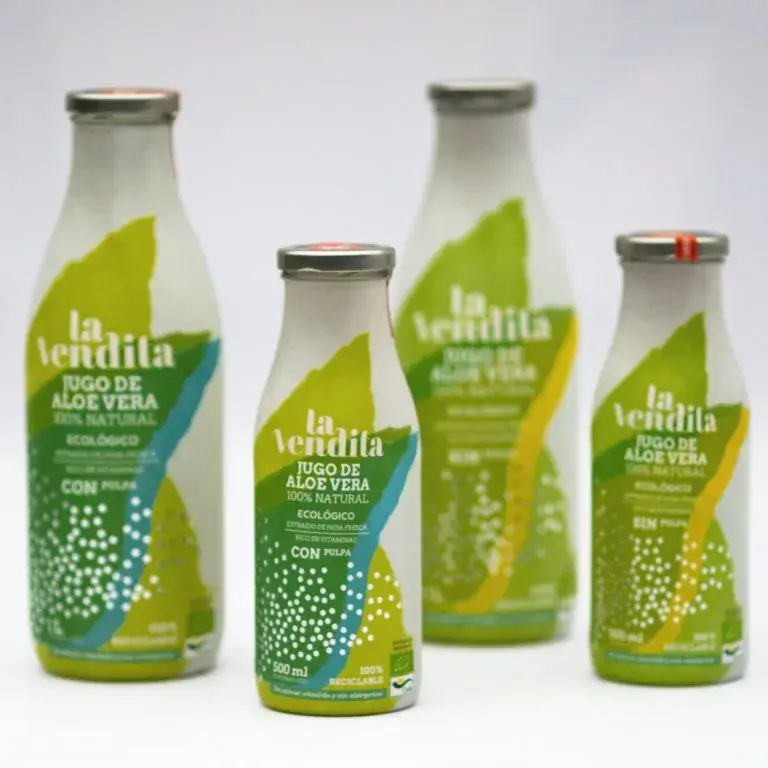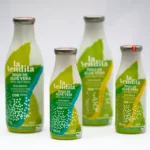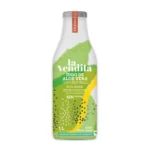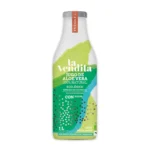

Crohn's disease: what is it?
IBD (Inflammatory Bowel Disease) is Crohn’s Disease. As a result, the digestive tract is inflamed and irritated. The disease can affect any part of the gastrointestinal tract (GI), but it is most commonly found in the small intestine (ileum) or large intestine (colon).
Young people (20-25 years of age) and elderly people (65 years of age) are most likely to suffer from it. It is often associated with autoimmune disorders such as rheumatoid arthritis and oral ulcers. People who suffer from Crohn’s Disease generally lead relatively normal lives. It is important to know the location, extent, and possible complications of the disease, as well as the treatment response of each individual.
Crohn’s disease has no cure. There are medications, surgeries, and diet changes that may help relieve the symptoms. It has been found that certain herbal medications are effective in the treatment of inflammatory bowel diseases (IBDs), including Crohn’s disease.
Aloe Vera is one of these natural medications. Inflammatory bowel disease symptoms can be reduced by Aloe Vera, which is used as a complementary and alternative medicine (CAM) in conjunction with other medications and therapies. Inflammation often extends to the nearby mesentery and lymph nodes as well as the entire wall of the affected tract.
What is Aloe Vera?
An Aloe plant containing therapeutic and rejuvenating properties and which is also consumed as a dietary supplement is known as Aloe Barbadensis Miller (Aloe Vera).
The stemless herb Aloe Vera grows in tropical climates. There are thick, fleshy leaves that are green or grey-green in colour. The plant is cultivated for its medicinal and ornamental properties. It is a member of the Lilacae family. There are several health benefits associated with the polysaccharides in the gel of the leaves.
It is well known that Aloe Vera is a healing herb. The herb has traditionally been used to treat a variety of ailments.
Crohn's disease and Aloe Vera
In the treatment of Crohn’s disease symptoms, Aloe Vera has seVeral beneficial properties:
Anti-inflammatory properties of Aloe Vera
Inflammation occurs when an injury or infection causes swelling and reddening in a particular part of the body. Pain is often the result. Crohn’s disease is characterized by inflammation of the intestines as one of its earliest symptoms. Moreover, there may also be inflammation of the skin, joints, and eyes in severe cases.
There is an inflammation-inhibitory system in Aloe Vera and there are several compounds in it that prevent inflammation and relieve it. Our tissues produce prostaglandins, which send signals to immune system cells to accumulate at the injury site and produce substances to fight pathogens. Inflammation occurs in that area as a result. Immune cells migrate to infection sites when interleukins signal them to do so. To protect the cells from pathogens, reactive oxygen metabolites such as superoxide (O2) and hydrogen peroxide (H2O2) are produced. Aloe Vera reduces prostaglandins, inhibits the cyclooxygenase pathway (which produces prostaglandins), and therefore prevents inflammation in the body.
Besides prostaglandins, it is also shown to inhibit the production of interleukins and reactive oxygen metabolites, which all cause inflammation in the intestine. In Aloe Vera, a compound called C-glycosyl chromone has been isolated that is known to show anti-inflammatory properties. Bradykinin, a peptide found in our bodies, induces pain by modulating inflammation. By breaking down bradykinin, the peptidase bradykinase in Aloe Vera relieves pain.
A compound called Lupeol is also found in Aloe Vera which reduces inflammation.
Why is this important?
By reducing prostaglandins, Aloe Vera reduces inflammation or swelling caused by Crohn’s disease in the digestive tract. As a result, inflammation is also relieved, as well as abdominal pain and cramps.
Aloe Vera is a powerful antioxidant
Aloe Vera has antioxidant properties. Cell damage caused by Crohn’s disease is prevented or delayed by it. The process of oxidation is inhibited or prevented by antioxidants. Our bodies undergo oxidation in a variety of pathways. This produces free radicals as a byproduct. As a result, these free radicals take electrons from the body cells in order to stabilize themselves. As a result, the cells may become damaged and die, causing illnesses and diseases.
Both free radicals and antioxidants are produced by our bodies. By neutralizing free radicals and removing them, antioxidants help maintain a healthy environment. Antioxidants help combat free radicals, but if they outnumber them, problems arise.
Therefore, it is important to consume as many antioxidants as possible in our diets. As a result of an imbalance between free radicals and antioxidants, oxidative stress is crucial to the onset of inflammation and subsequently the aggravation of symptoms.
Free radicals are produced in the intestines as a result of the presence of various microbes, food, and body cells. As a result of these free radicals, cells are damaged or injured, and Crohn’s Disease develops. Antioxidants are therefore necessary to prevent this. The immune system is also enhanced by antioxidants.
Aloe Vera contains phenolic compounds that have antioxidant properties.
Why is this important?
Aloe Vera contains antioxidants that prevent inflammation and cell damage in the intestines, which makes it a beneficial alternative medicine for Crohn’s disease.
As an immunomodulator, Aloe Vera is effective against Crohn's disease
Crohn’s disease is immune-related, so regulating the immune system is essential for alleviating symptoms. Swelling and inflammation are caused by several bacteria or injuries that activate the immune system. Whenever a foreign bacteria enters our body or bacteria in our intestines multiply, our immune system reacts and the immune system releases several cells to fight them.
Aloe Vera exhibits immunoregulatory properties. The macrophage cells are activated by it. Macrophages are white blood cells that digest microbes and foreign substances. In the case of tissue injury, it induces an immune response by stimulating the growth of fibroblasts. By increasing phagocytic activity (the ability of immune cells to ingest bacteria), it modulates the immune system as well.
In this way, the immune system can fight off bacteria and foreign substances that might have triggered the immune response. The production of cytokines is increased. The cytokines are substances such as interleukins, interferons, and growth factors.
That plays an important role in the signalling and coordination between immune cells. Nitric oxide is released from these cells by these enzymes. The antibacterial properties of nitric oxide help eliminate harmful bacteria. These molecules enhance the immune response and are responsible for binding to cells on the cell surface.
Why is this important?
By improving immune cells’ synthesis and functioning, Aloe Vera acts as an immuno-modulator. The removal of these bacteria eliminates the possibility that Crohn’s disease was caused by them.
Aloe Vera improves digestion
Aloe Vera disrupts the growth of pathogens in the gut that may contribute to digestive problems.
Infections caused by bacteria in the gut can be prevented by its antibacterial and antimicrobial properties. As a result, digestion is hassle-free and efficient.
Phytosterols found in Aloe Vera play an important role in glucose and lipid metabolism. As a result, digestion is improved.
Why is this important?
Due to Aloe Vera’s ability to fight bacteria and improve metabolism, it can enhance digestion by enhancing intestinal absorption.
Aloe Vera has anti-ulcer properties
Inflammation causes ulcers when the immune system accumulates cells in order to combat foreign substances.
The immune system responds to prostaglandins, which signal them. As an anti-inflammatory, Aloe Vera can reduce prostaglandins that trigger inflammation and lead to ulcers.
This plant contains polysaccharides and anthraquinones that control gastric secretion and prevent ulcers from forming. Also, it promotes ulcer healing and reduces ulcer size.
Why is this important?
With Aloe Vera, mouth ulcers and ulcers in other parts of the gastrointestinal tract can be prevented or treated in severe cases of Crohn’s disease.
Aloe Vera contains antibacterial properties
The presence of foreign bacteria in the gastrointestinal tract or an increase in the number of naturally occurring bacteria. It is followed by a response from the immune system that releases immune cells at the site of injury or infection, causing inflammation. Getting rid of these bacteria and preventing their spread is crucial.
The antibacterial properties of Aloe Vera are well known. It fights and eliminates bacteria in the gut with various compounds. Infections caused by bacteria can also be treated with it. Infections can develop in Crohn’s disease caused by fissures and abscesses in severe cases. Bacteria are inhibited and prevented from growing in these areas by Aloe Vera.
Why is this important?
By fighting off harmful bacteria in the gastrointestinal tract, Aloe Vera eases the symptoms of Crohn’s disease.
Using Aloe Vera to treat Crohn's disease


Make sure to read all product labels before taking any natural supplements. Be sure to read labels and ingredients to ensure your Aloe Juice is of the highest quality, and make sure it’s latex-free since Aloe latex and aloin can pose certain risks.
The yellow liquid found under the leaf of Aloe is called ALOIN, and it has a strong laxative effect. The symptoms may include cramping in the intestines, abdominal pain, nausea, vomiting, and electrolyte imbalances. Those with Crohn’s disease should avoid eating latex leaf linings since they contain anthraquinone glucosides, which are laxatives. Diarrhoea and stomach cramps can occur as a result.
In order to avoid adverse effects from Aloe Vera juice, seek medical advice before taking it for Crohn’s disease. You should consult your doctor regarding the consumption of Aloe Vera based on your symptoms. The immune-boosting properties of Aloe Vera are also well known.
With Crohn’s disease being an immune-related disease, one must be careful when taking Aloe Vera while having an oVeractive immune system.
You can try La Vendita Aloe Vera juice with or without pulp. Our Aloe Vera Juice is natural, organic product and ALOIN FREE.
The only Ingredients of our Aloe Vera Juice are Organic Aloe Vera juice (99,8%) and citric acid (0.2%).
- No preservatives, dyes, or flavours.
- No added water or added sugars.
- Gluten-free, lactose-free and suitable for Vegetarians.
La vendita Aloe Vera juice is natural juice with pulp or without pulp of Aloe Vera obtained from inner leaf gel. This juice is packed with nutrients and full of vitamins containing A, C, E and B groups, including B12 and folic acid, and minerals such as calcium, magnesium, sodium, copper, manganese, potassium, zinc, chromium, and iron.
Dosage:
- Take 50ml/day. It can be consumed alone or mixed with other fruits juices or honey.
- Add every day to your favorite beverage, smoothie, or juice blend
It is important to ask your doctor for the appropriate dosage so you can enjoy the maximum benefits with little to no side effects.
When taken with care and precautions, Aloe Vera has proven benefits for people with Crohn’s disease and Inflammatory Bowel Disease (IBD).
The use of Aloe Vera should be discontinued if you experience any problems or encounter any allergic reactions.





